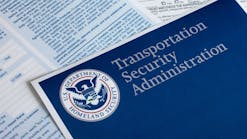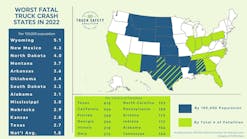The American Trucking Associations thanked Congress for enacting a fix to the hours-of-service restart that will restore the regulation to the pre-July 2013 version and reduce crash risk on our nation’s highways.
“ATA thanks Congress for passing this continuing resolution, which includes language to permanently fix the hours-of-service restart, and that the President is expected to sign into law shortly,” said ATA President and CEO Chris Spear. “It is now our hope that as an industry, we can put this issue firmly in the rearview mirror. Thanks to hard work by Congressional leaders of both parties and in both chambers, we are one step closer to having an hours-of-service restart rule that makes sense and puts safety first”
The language in the continuing resolution should, pending the results of a Department of Transportation study, restore the restart rules to what they were before July 2013 when two unjustified restrictions were imposed on 3.5 million professional truck drivers.
“The changes to the restart could have been devastating to my fleet and thousands of other trucking companies across the country,” said ATA Chairman Kevin Burch, president of Jet Express Inc, Dayton OH. “By including this language, Congress has done a tremendous service for highway safety, the trucking industry, and its millions of professional drivers and Congress should be thanked.”
In July 2013, the Obama Administration restricted the use of the restart--an extended off-duty period drivers use to reset their workweeks--to only once every 168 hours and required that the restart period include two overnight stretches between 1 am and 5 am. The impact of these changes--until they were suspended in 2014--was an uptick in early daytime driving by trucks and an increase in crashes due to the resulting congestion.
“These rules, put forward based on a very limited laboratory sleep study, could have had serious negative safety impacts,” Spear said. “The restart is an important tool for drivers, not to maximize driving time, but to have the flexibility to maximize off-duty time and time at home, and we are pleased that drivers will continue to have unrestricted access to it.”








